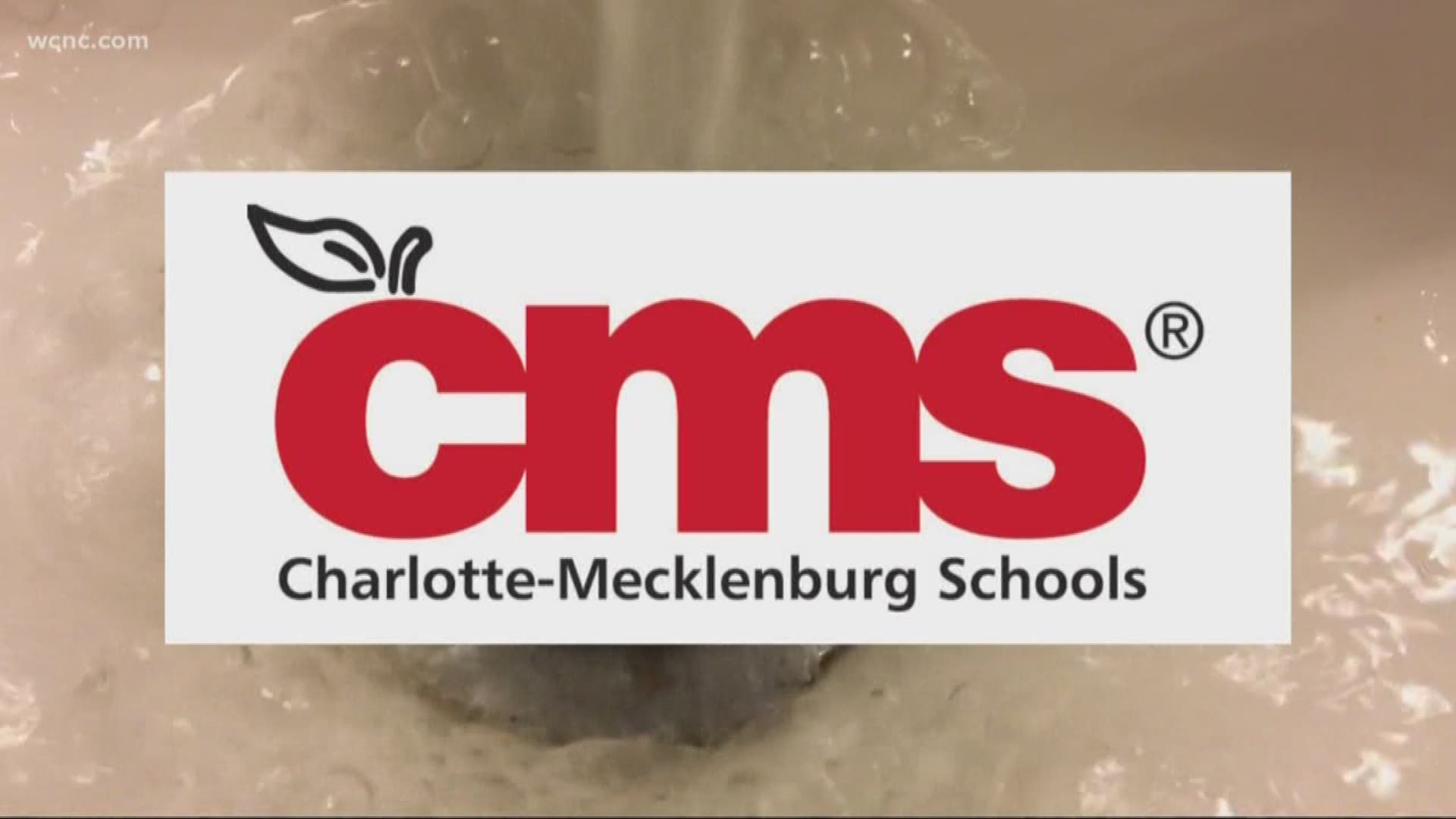CHARLOTTE, N.C. — As Charlotte-Mecklenburg Schools (CMS) started its second round of voluntary lead testing Monday at more than 30 additional schools, a federal report urged more districts to do the same.
The U.S. Government Accountability Office report found only 43 percent of school districts nationwide test for lead, and of those, more than a third found elevated levels. Beyond that report, an environmental health expert said CMS' initial results are an indicator of an even bigger problem.
"It tells us that the school infrastructure is failing and that we really need to take a close look at that and make the investment we need for our kids," retired UNC Charlotte Public Health Professor Dr. Gary Silverman said. "An old infrastructure that's not managed properly can result in substantial long-term health impacts. Unless we invest in our infrastructure, our kids will be at risk."
While the environmental health and water quality expert said he was concerned about CMS' original lead testing results, he worries "about other things more." Dr. Silverman said it's time to dedicate more money to school facilities that aren't just home to lead, but also mold, problematic heating and cooling units and other possible environmental contaminants.
"You have to worry about the infrastructure and not just ignore it hoping that it will be okay because we don't see immediate adverse impacts," he said.
CMS superintendent Dr. Clayton Wilcox said the district will continue its lead testing cycle beyond this year at all schools and take corrective action to ensure student safety, not just for lead.
"We have an ongoing cycle for not only testing water, but for testing air quality as well," Dr. Wilcox said.
While several area school districts test for lead, CMS' results were by far the most eye-opening. After restricting access to some water fixtures as well as repairing, replacing and removing others in two dozen elementary schools, the district is now testing for lead in 32 middle and high schools. The schools in question are those identified by CMS as the most at risk because of their age; they were built before 1990.
"As part of our commitment to providing safe, healthy environments, the district will continue its voluntary water testing that began in the spring," CMS said in a message to parents Thursday. "We don't expect to find significant water-quality issues but we are being proactive to ensure that the water in our pipes, faucets and water fountains is clean and safe."
CMS promised to share the results with parents after this round of testing which ends in November. The district only shared the lead testing results last time after NBC Charlotte requested and questioned the results -- which found elevated levels in two dozen elementary schools. CMS declined our requests to film testing, but a spokesperson said there will be a demonstration soon.
"The water testing follows EPA-recommended procedures and protocols," chief communications officer Tracy Russ said. "Exact step-by-step details of the testing procedures are available on the CMS Water Quality web page and also within each school report posted so that anyone can learn more about the testing process, steps and procedures.
"AECOM, the independent testing firm hired by CMS to conduct the testing, has asked that their full focus be on the testing and that to ensure this full focus and integrity of results, the actual testing in schools be conducted with only needed experts present. We are still working to arrange a demonstration or walk-thru of the testing process for media as Round 2 testing continues through November 9."


